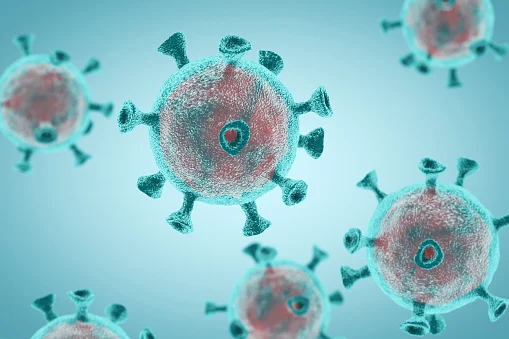预约演示
Experts warn that a COVID-flu 'twindemic' might hit hospitals hard this year
2022-10-05
抗体疫苗

Preview
来源: FierceHealthcare
Experts keeping an eye on COVID-19 worry that the somewhat comforting assessment given the public when vaccines arrived—that they will keep people from dying or being hospitalized—might not hold up, at least the part about being hospitalized, if we’re hit with a fall and winter surge yet again. Hospitalizations might indeed rise, taxing an already overburdened and understaffed healthcare system especially if influenza makes a comeback.
In fact, cases of influenza sunk to historic lows, according to the Centers for Disease Control and Prevention (CDC), a development that many experts considered a byproduct of mitigation measures—social distancing, hand hygiene, and, particularly, masking—against COVID-19. What people did to avoid COVID-19 stopped the flu in its tracks.
“Since SARS-CoV-2 emerged in the United States in early 2020, influenza activity has been lower than that seen before the pandemic,” said a study in Morbidity and Mortality Weekly Report, a CDC publication. “The adoption of COVID-19-related mitigation measures might have had an impact on the timing or severity of influenza activity.”
This year the twindemic might hit partly because people don’t wear masks anymore, but also because people might have gotten lax about getting the flu vaccine, ignoring the urgings of organizations like American Hospital Association to get inoculated.
William Schaffner, M.D., medical director of the National Foundation for Infectious Diseases (NFID), explained the situation recently to JAMA Network. From the article: “Given the low severity of the last two flu seasons, ‘[w]e really have to remind people about influenza and how it’s so important,’ Schaffner said. ‘The sense I have is that we vaccinated less than our targets.’”
An NFID survey states that while 69% of adults in the U.S. agree that flu vaccination is the best preventive measure against flu-related deaths and hospitalizations, only 49% plan to get a flu vaccine during the 2022-2023 flu season. Meanwhile, individuals should be careful when it comes to selecting a mask. About 60% of KN95 masks evaluated in 2020 and 2021 did not meet safety standards, according to the CDC.
Richard Webby, PhD, of St. Jude Children’s Research Hospital in Memphis, told JAMA Network: “I do think we’re likely going to have a big flu season.”
Justin Lessler, an infectious-disease epidemiologist at the University of North Carolina at Chapel Hill, told Nature that “in a bad flu year hospital systems get pretty stressed.” Nature reported that “even a relatively muted COVID-19 wave” together with a fulsome influenza surge will place a heavy burden on hospitals.
One of the experts who cited the Australian flu numbers is Anthony Fauci, M.D., the director of the National Institute of Allergy and Infectious DiseasesAllergy and Infectious Diseases and President Biden’s chief medical advisor.
In an interview for the USC Annenberg Center for Health Journalism yesterday, Fauci said that “we are entering into the winter months where no matter what the respiratory disease is, there’s always the risk of an uptick in respiratory diseases.” Fauci added that “even though BA.5 is the variant that is the one that is dominant, you have the creeping up of variants that are sub-linages like BA.4.6. We don’t have much of BA.2.75.2 yet, but there are other countries that do have that. Although we can feel good that we are going in the right direction, we can’t let our guard down.”
The countries that have seen an uptick in COVID-19 cases include the United Kingdom, where the number of people testing positive for the infection has been rising steeply the last two weeks, according to the U.K.s Office of National Statistics. Part of that surge is because of the rapid growth of BQ.1, a subvariant of BA.5.
A twindemic is far from inevitable. In fact, we may not get hit with a twindemic because of the way Omicron and influenza interact. In the JAMA Network article, Schaffner posits: “Do these viruses influence each other’s behavior? Do they sort of interfere with each other?”
And even Webby, who thinks we’re probably in for a tough flu season, seems to hedge his bets. He tells JAMA Network that the Omicron variant “really blunted the flu season for reasons we don’t understand.” It’s possible that when “you get infected with a virus you get this sort of nonspecific immunity.”
更多内容,请访问原始网站
文中所述内容并不反映新药情报库及其所属公司任何意见及观点,如有版权侵扰或错误之处,请及时联系我们,我们会在24小时内配合处理。
机构
靶点
-药物
-生物医药百科问答
全新生物医药AI Agent 覆盖科研全链路,让突破性发现快人一步
立即开始免费试用!
智慧芽新药情报库是智慧芽专为生命科学人士构建的基于AI的创新药情报平台,助您全方位提升您的研发与决策效率。
立即开始数据试用!
智慧芽新药库数据也通过智慧芽数据服务平台,以API或者数据包形式对外开放,助您更加充分利用智慧芽新药情报信息。




